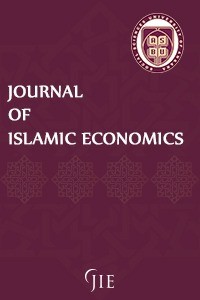Öz
Kaynakça
- Refernece 1: Al-Ghazali, A.-H. (2008). Al-Mustasfa Min A’lm Al-Usul. Al-Madina Al-Munawwara Company. https://waqfeya.com/book.php?bid=1140
- Reference 2: Al-Jarhi, M. A. (2021). Economic Analysis: An Islamic Perspective (vol. 1). Albaraka Group. https://ulifam.asbu.edu.tr/sites/digerleri/ulifam.asbu.edu.tr/files/inline-files/Economic Analysis%2C An Islamic Perspective Volumel I_0.pdf
Rational Behavior in Islam (Islamic Rationalism): A Critical Evaluation of the Extreme Rationality Assumption
Öz
Rationality, as an inherent doctrine in mainstream economics, has received waves of criticism throughout the history of economic thought and the rising of modern economics due to the inadequacy of the classical and neo-classical “homo-economicus” prime axiom in reflecting reality. Moreover, the conventional rationality concept shortfalls in being convenient to the framework of Islamic economics. As an extension to the existing critical literature studies, this paper aims at proposing a new approach in analyzing rational human behavior in Islam economic framework, including the introduction of a well-being function where an Islamic rationalist is not only a utility maximizer but also a morality maximizer who aims at maximizing his utility in the worldly life and the hereafter. Additionally, the paper includes empirical evidence against the “Rational Choice Theory”. By analyzing the answers of 363 participants from Turkey concerning their purchasing motives, participants, according to the conventional mindset, are making irrational decisions due to external factors, that were negligible in the conventional theory, such as advertising, social environment, addictive tendencies, and mood swings.
Anahtar Kelimeler
Rationality Satisfaction Utility function Well-Being Islamic economics Economic man
Destekleyen Kurum
Ankara Sosyal Bilimler Üniversitesi
Teşekkür
to the encouragement to complete the paper. The included survey was constructed and distributed with common efforts of the author, and the most appreciated efforts of the colleagues: Nur Shasha Dilla Binti Mohd, Zeynep Kömürcüoğlu, and Adna Ibrahim.
Kaynakça
- Refernece 1: Al-Ghazali, A.-H. (2008). Al-Mustasfa Min A’lm Al-Usul. Al-Madina Al-Munawwara Company. https://waqfeya.com/book.php?bid=1140
- Reference 2: Al-Jarhi, M. A. (2021). Economic Analysis: An Islamic Perspective (vol. 1). Albaraka Group. https://ulifam.asbu.edu.tr/sites/digerleri/ulifam.asbu.edu.tr/files/inline-files/Economic Analysis%2C An Islamic Perspective Volumel I_0.pdf
Ayrıntılar
| Birincil Dil | İngilizce |
|---|---|
| Konular | Ekonomi |
| Bölüm | Research Articles |
| Yazarlar | |
| Yayımlanma Tarihi | 15 Temmuz 2021 |
| Gönderilme Tarihi | 22 Nisan 2021 |
| Yayımlandığı Sayı | Yıl 2021 Cilt: 1 Sayı: 2 |
İslam Ekonomisi Dergisi Creative Commons Atıf-GayriTicari 4.0 Uluslararası Lisansı (CC BY NC) ile lisanslanmıştır.

